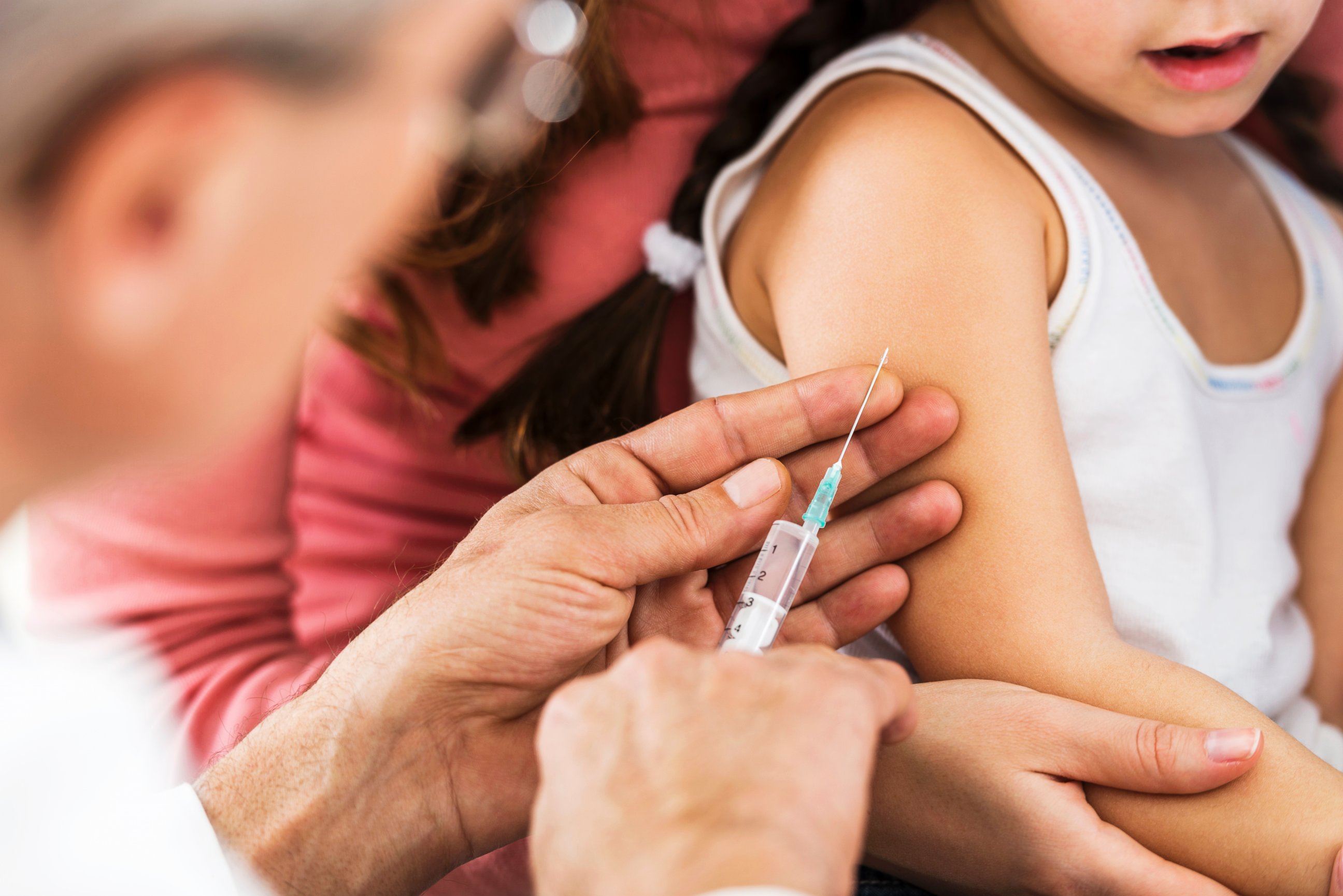The impact of COVID-19 on infant and child health care, beyond missed vaccinations
Avoiding doctor’s offices could have dire consequences beyond vaccination rates.
Families are keeping children safe at home by heeding warnings to stay inside during the COVID-19 pandemic. But in spite of parents' best intentions, strict adherence to home quarantine has created a new problem that puts kids at risk: missed doctor's visits.
Regular appointments with a child's primary care provider are essential to a child's health -- particularly in the first two years of life, when growth and development need close monitoring and the majority of vaccinations are given. Although it may seem counterintuitive, experts say parents should try to keep those appointments, even during lockdown, and the American Academy of Pediatrics (AAP) strongly encourages in-person visits whenever possible.
Still, numbers in pediatric clinics have steeply declined. Dr. Eileen Costello, a pediatrician and the chief of ambulatory pediatrics at Boston Medical Center, which serves around around 14,000 vulnerable patients, about 90% of whom are on public insurance, said the center's usual clinic volume decreased by approximately 80% last month.
New data shows vaccine rates are drastically declining, raising concerns that kids will be at risk for life-threatening but preventable diseases, which Costello points out are much more dangerous for children than COVID-19.
"We'll be having pertussis and measles outbreaks in a couple months, which are going to be way more devastating," she said.
Tune into ABC at 1 p.m. ET and ABC News Live at 4 p.m. ET every weekday for special coverage of the novel coronavirus with the full ABC News team, including the latest news, context and analysis.
There are other time-sensitive aspects to pediatric care that are being missed in addition to vaccinations.
"I am particularly worried about the kids who we are not currently screening for things like developmental delays, learning disabilities and even autism. For these kids, months can be precious when it comes to their long term outcomes," said Dr. Edith Bracho-Sanchez, a pediatrician at New York-Presbyterian Hospital's Broadway Practice and director of pediatric telemedicine for NYP's Ambulatory Care Network.
Trips to the emergency department are also becoming infrequent, which could have dire consequences.
"I don't want kids staying home with appendicitis or abscesses because their families are afraid," said Costello.
For adolescents, a population for which regular in-person visits might seem less crucial, pediatricians are worried about the impact of COVID-19 on mental health.
Symptoms of depression and anxiety are assessed at every regular pediatric visit, and with end-of-year celebrations canceled and parents facing unique challenges, Costello notes, "kids feel like it's the end of the world."
Particularly, Bracho-Sanchez said she's seen children of essential workers already acting out, "the first sign they are stressed," as they "are being told to stay inside but have to see their parents go out and put themselves in harm's way."

In response to mounting worries, pediatric clinics are creating solutions to deliver essential care. Early in the pandemic, Costello's team proactively combed through their schedule to identify appointments essential to maintain in-person, while others were safely postponed.
For certain appointments, such as those intended to follow-up on known problems, assess new medications or obtain a referral to a specialist, telehealth was recognized as a safe way to save a trip out of the home.
"We think about a quarter of our visits could be managed with virtual visits," Costello said, noting that telehealth has actually enhanced care for some patients.
Young children, often anxious in an unfamiliar doctor's office, can be better observed in their typical home environment, and families with transportation issues can have more regular follow-up.
But telehealth is no substitute for time-sensitive vaccination or sick visits, pediatricians warn, and "you can't really look at an ear through a screen to diagnose an ear infection, or swab a throat for strep," Bracho-Sanchez said.
So with hundreds of families hesitant to seek care, nurses and physicians on Costello's team are now traveling to families' homes.
Boston Medical Center created a "mobile clinic" with a donated ambulance that delivers health care across Boston. This includes newborn care and infant vaccines as well as care for children with chronic diseases and families without access to food and supplies.
Pediatricians are also concerned about outbreaks of teenage pregnancy as teens struggle to stay at home and may not have access to contraceptive methods, so the mobile clinic is delivering contraceptive shots.
However, not every zip code has access to mobile clinics, leaving some children without care. Pediatricians urge these families to seek care when appropriate.
Although adults with chronic diseases should avoid hospitals when possible, families should be reassured that extensive measures are being taken to prevent the spread of infection. Both Costello and Bracho-Sanchez said their offices are screening all patients at the door for signs of infection and seeing sick children in entirely different areas.
But with lockdowns still ongoing in many cities and warnings about COVID-19 dominating daily news, Costello and Bracho-Sanchez say the main barrier to keeping kids healthy is the understandable fear felt by parents.
"The messaging about social distancing and the sheer number of cases in our hospital has made people think twice about coming in to care," said Costello. "I'm worried about the degree to which the 'fear factor' is impacting families coming in when they really should come in."
Chloë Nunneley, M.D., a resident physician in pediatrics at Boston Children's Hospital and Boston Medical Center, is a contributor to the ABC News Medical Unit.




